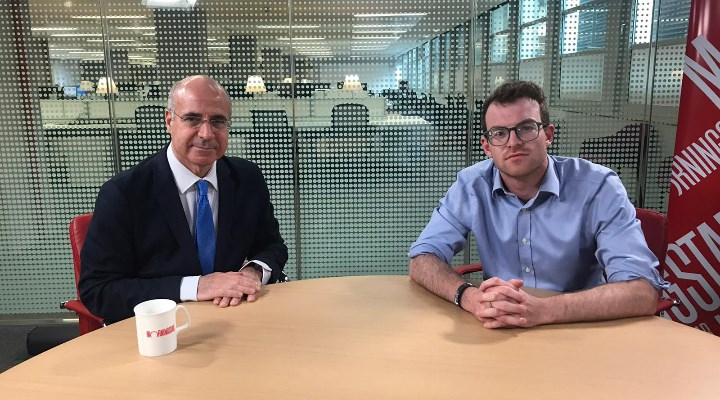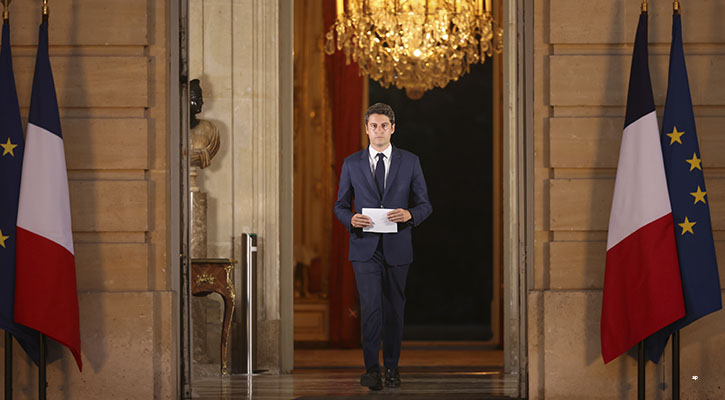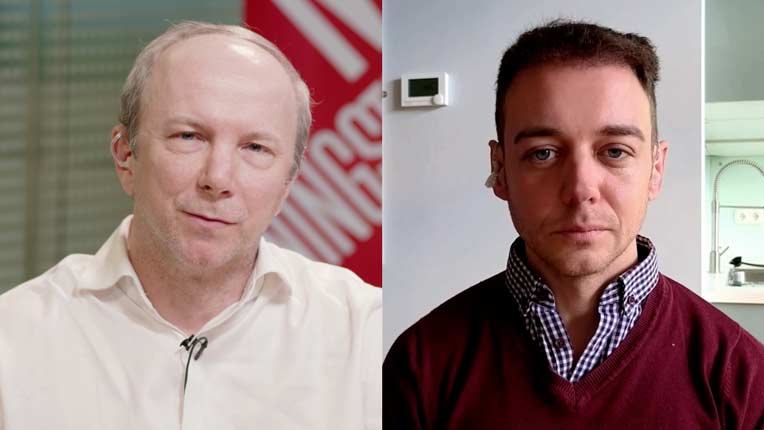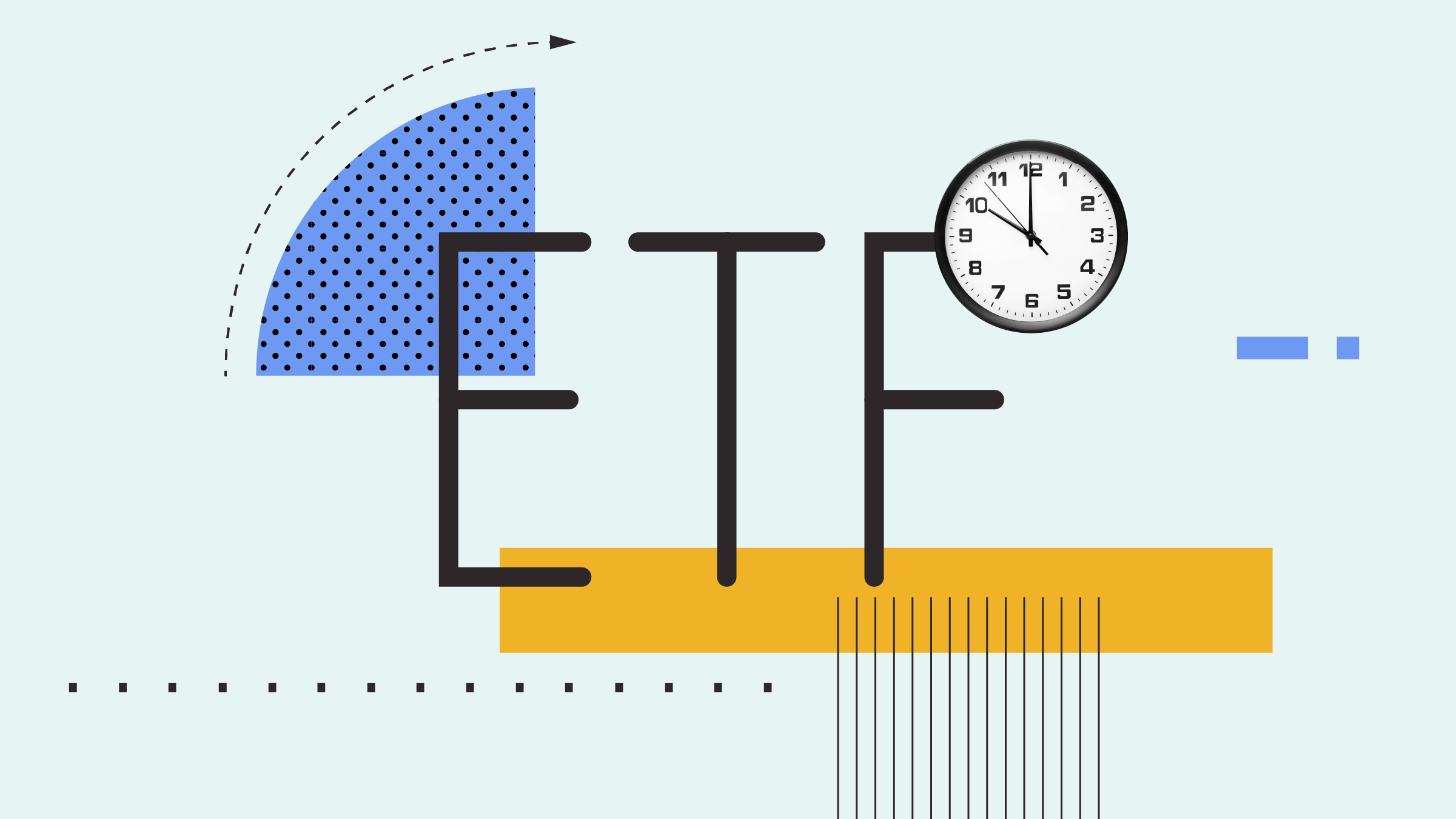Last year, Hermitage Capital Management founder and CEO Bill Browder told delegates at Morningstar's Investment Conference in Chicago a story of money, state-sponsored murder, and manipulation.
In a one-hour speech, he described his journey from being the son of an arch-communist agitator, to being a professional investor and enemy of the Russian state.
Seven months on from that, and nearly three months after the invasion of Ukraine, he speaks to UK editor Ollie Smith in our London studio.
In this wide-ranging and solemn conversation, Browder explains his take on Russia's strategic military failures, Vladimir Putin's state of mind, and his struggle to expose what he believes are the crimes of the most corrupt country on Earth.
During the interview, Browder alleges that:
- Putin started the war because he was worried about his seat of power after witnessing upheaval in Kazakhstan and the threat of unrest in Belarus;
- There may very well be much worse to come, as Putin has run out of military options and is targeting civilians to exert his will on Ukraine;
- Corruption in the Russian military hollowed out a fighting force now pitted against a prepared and motivated enemy.
You can read a full transcript of the conversation here. Viewer discretion is advised.
'Total Disaster'
Ollie Smith: Now, you may know him as the US financier who made an enemy of Vladimir Putin in the early 2000s with investments in Gazprom. Bill Browder wowed the audience at Morningstar's Investment Conference last year, and a few months later, he is back in the UK studio to talk to me about the situation on the ground in Ukraine, Vladimir Putin himself, and his new book.
Bill, I'm really excited to meet you. Thank you very much for making the time to come in. Would you agree, first and foremost, that the military situation in Ukraine has been a disaster for Vladimir Putin?
Bill Browder: Total disaster. Putin thought he was going to roll in, within two days the Ukrainians would capitulate, Zelensky would flee and that they would raise the Russian flag in Kyiv. He had no anticipation of what he and his military had in store. The Ukrainians have had eight years of training for this.
Everyone says this war started on February 24th, but this war didn't start on February 24th. This war started in 2014. In 2014, Russia illegally annexed Crimea. And then Russia sent in mercenaries to fight in Eastern Ukraine. And one of the big sins that we have played in the West is to somehow put that situation in Eastern Ukraine in some weird little box, that we call them Russian-backed separatists and somehow, it's not a war. It's not a Russian invasion of Ukraine. It has been a Russian invasion of Ukraine. And for the Ukrainians, they have spent the last eight years getting up to snuff when it comes to fighting Russians. And so, they might have been terrible. Their military was a disaster in 2014 when they had faced the first Russian invasion.
OS: But not anymore.
BB: Now, they are fully war-weary hardcore soldiers, and they know how to fight, and they're fighting for a much better cause than the Russians are fighting for. They're fighting for their home, their freedom, their children whereas the Russians don't even know what they're fighting for.
OS: Okay. We'll come on to Vladimir Putin in just a second. But I mean, do you attribute that military failure to an intelligence failure specifically or kind of cult of personality failure? What's gone wrong specifically there?
BB: Well, what's gone wrong is that Russia is the most corrupt country in the world. Every government agency, every ministry, every department, 80% of the money is stolen by the person in charge of that department. And it's no different for the military as it is for the Ministry of Finance or the Ministry of Fuel and Energy. And so, you have this situation where it's like this mafia fiefdom and all the money was stolen from the military. So, I've heard these incredible stories where Russian soldiers have gone into Ukraine with their tanks and without even fighting the Ukrainians have offered them $25,000 personally for the tank, which costs $2 million, and they take the money.
OS: Almost like the privatisation of Russia in the first place. It was a bargain!
BB: Exactly. And why are they taking the money? Because the soldiers haven't been paid.
OS: Yeah.
BB: And those are the guys making the big money. The little money comes from selling the gas out of the gas tank of the tanks. So, they run out of gas before they even make it into Ukraine or on the highway.
OS: So, there are all sorts of sort of micro-conflicts going on underneath the military.
BB: Well, it just doesn't work. The whole thing doesn't work. And so, you've got a bunch of people who are not motivated, where the situation is totally corrupt, where the planes can't fly because they've sold all the spare parts on the MiGs to the Indian military who also use the MiGs, who have a very effective Air Force. And so, Putin with all of his chest thumping and grandiosity had sent in a totally hollowed out military to fight a war against people who are absolutely trained up ready to die for their country, and it's been a total disaster.

'He's a Psychopath'
OS: So, coming on to the topic of Vladimir Putin, you'll be aware of the rumours circulating around his state of mind and indeed his physical health, the sense that perhaps something has gone dreadfully awry for him personally. What's your understanding of Vladimir Putin, the person here, his isolation perhaps, his mindset.
BB: Well, so on the one hand, his behaviour is totally different than his previous behaviour. Before, he always kept one foot in the civilised world, with Gerhard Schröder as his friend and Silvio Berlusconi, and hosting the World Cup and all those, kind of, stuff, going to Davos.
On the other hand, he was murdering, invading countries, bombing civilians, and he was able to keep these two things in balance. The main thing that's different now is him taking entirely the foot out of the civilised world and going fully into the criminal world. Having said that, he has always had a history of being a mass murderer, a terrible criminal and somebody where this is not inconsistent with his behavior. I mean, just how did Vladimir Putin come to power?
OS: Via the KGB and his…
BB: Well, he came to power very specifically by setting up a number of domestic terrorist incidents where a bunch of apartment buildings were bombed in Moscow. And it turned out that one of the apartment buildings didn't get bombed and they caught FSB agents, his secret police agents, planting the bomb. What was the purpose of these bombs? To blame it on the Chechens and to start a war in Chechnya so that his approval ratings could go up as being a sort of tough wartime president. And so, the original sin of his presidency was a domestic terrorist attack, killing hundreds of Russians to justify a war to kill tens of thousands of Chechens.
OS: And here we are again.
BB: Exactly. And so, is it abnormal? Has he changed? Has he gone insane? No. This is Vladimir Putin from the very beginning.
OS: Do you think he is ill personally?
Browder: Yes, he was mentally ill from the very beginning. He's a psychopath.
OS: And physically? Do you think he is looking for some kind of final last hurrah before the inevitable end?
BB: No. I think he has been a mentally ill man from the very beginning. He is a psychopath. He doesn't have any capacity for empathy. His heart wouldn't start beating faster if someone was being tortured to death in front of him. His closest comparable is Hannibal Lecter. The only difference is he was a cannibal and Putin doesn't enjoy human flesh, but otherwise the same character. And that's what Putin is.
Is he sicker now than he was before? No. He is just more scared now. What motivated him to go into Ukraine, I believe, is fear that something will come along, and some firewood get started and it would engulf him, and his administration and he end up losing power. I think that's what he was worried about.
OS: Okay.
BB: He watched the same thing happen in January in Kazakhstan. A dictator who had been there longer than him was engulfed in a weekend because they raised gas prices. And Putin saw that. He saw Lukashenko, who fabricated an election in Belarus, almost lose power. And Putin said "I need a war" like he started his presidency to stay in power and that's what Ukraine is all about.
OS: So, just finally on Putin specifically, is there any way back here? I mean, can he somehow stick his foot back in the civilised camp?
BB: No. The President of the United States has declared him to be a butcher, a war criminal and a mass murderer.
OS: So, where does that end then? With his head on a stick or…?
BB: Well, it ends one of two ways. There is the Kim Jong-un scenario where he carries on with a pariah state, making life worse and worse for the average Russian and flexing his muscles and intimidating the West until the end of his natural life. Or the alternative is that the Ukrainians win this war. The Russians won't tolerate a loser as president, and they will take care of him. We don't have to do anything.
'My Career is Over'
OS: So, high stakes then. Okay. Well, moving on to the topic of speaking out about this, because you've been very vocal historically about this, but you've also endured some quite considerable personal cost in doing so. I mean, your speech to Morningstar Investment Conference last year talked about trumped-up charges and a bogus arrest warrant from Interpol and being arrested in Spain. You've got your new book out. I want to ask you about the book. But first and foremost, I want to know what do you consider the personal cost to be here. Do you feel as though that you consciously carry a risk to your career or to your life in talking about Russia?
BB: My career is long gone. My life is at risk. I've been threatened with death, with kidnapping. Eight Interpol arrest warrants. I have been sentenced in two Russian cases to 18 years in a Russian prison camp in absentia. They've tried extraditing me from the U.K. They sent teams of surveillance specialists and investigators to track my movements. It's a damn scary life I have to live doing this.
But I mean, it's all been motivated by the murder of my lawyer, Sergei Magnitsky back in 2009. He uncovered a massive government corruption scheme, Putin corruption scheme. He exposed it, and he was arrested, tortured and killed. And since then, I wasn't ready to let that go, and I've been on a mission getting justice for Sergei. That led to the Magnitsky Act being passed, which freezes assets of Putin and his chronies, and that's led to his basically signing a fatwa for me, a Putin fatwa, going after me and trying to destroy me.
OS: So, tell me a little bit more about the book then. I mean, what's the motivation specifically?
BB: So, this is my second book. It's called Freezing Order. My first book was called Red Notice. The first book tracks my career and my life up until things turned bad in Russia and then afterwards it talks about how Sergei Magnitsky discovered this crime, exposed it, was arrested, tortured and killed, and it ends with the passage of the Magnitsky Act.
My second book, the new book, is all about going after the money, the $230 million that Sergei Magnitsky discovered was stolen from the government and figuring out where that money went. And as we sort of peeled the onion and went through this investigation, we discovered all sorts of officials got this money and Vladimir Putin got some of this money. And then, the book describes all the different ways in which Vladimir Putin tried to stop me and everybody around me, including killing more people, trying to kill more people, arresting people, arresting me, leading right up to interfering in the US presidential election and trying to get Donald Trump elected.
What's Next for Ukraine?
OS: Sure. Finally, Bill, thank you very, very much for coming in. Could I ask for your reflection on the next six months? It's been roughly six months since your speech to the Morningstar Investment Conference. What do you expect in the next half year?
BB: Well, the first thing is I don't expect the war to end. The Ukrainians are not going to give up their territory and Putin is not going to go into reverse gear. So, what does that lead us to? Putin is a guy who cannot accept humiliation, and he has been humiliated. So, what does he do? He escalates. How does he escalate? I can't say specifically because I don't know, but something much worse than what we've seen so far. He is unable to confront the Ukrainians militarily in a very effective way. And so, the easy thing to do is just to go after defenseless people, civilians. And so, I think, the next step in his conflict is a much, much worse massacre than anything we've seen before.
OS: So, in that sense then, any sort of short-term news of strategic offensives within Ukraine could just be a holding pattern for something much worse?
BB: That's my prediction.
OS: Okay. Bill, thank you very, very much for your time today. For more on Ukraine and the impacts on financial markets, check out any of Morningstar's websites across the world. Until next time, I've been Ollie Smith for Morningstar.








.jpg)












